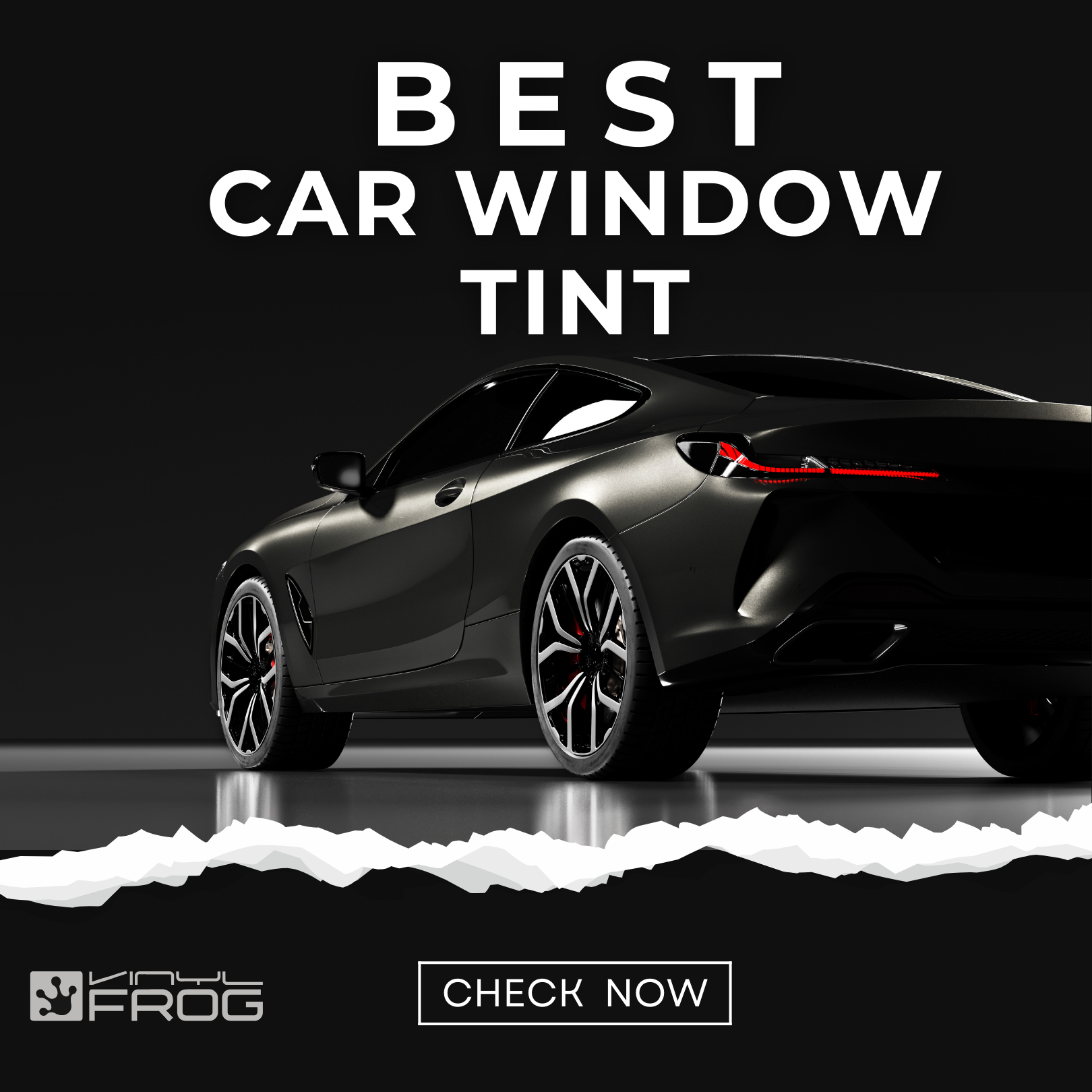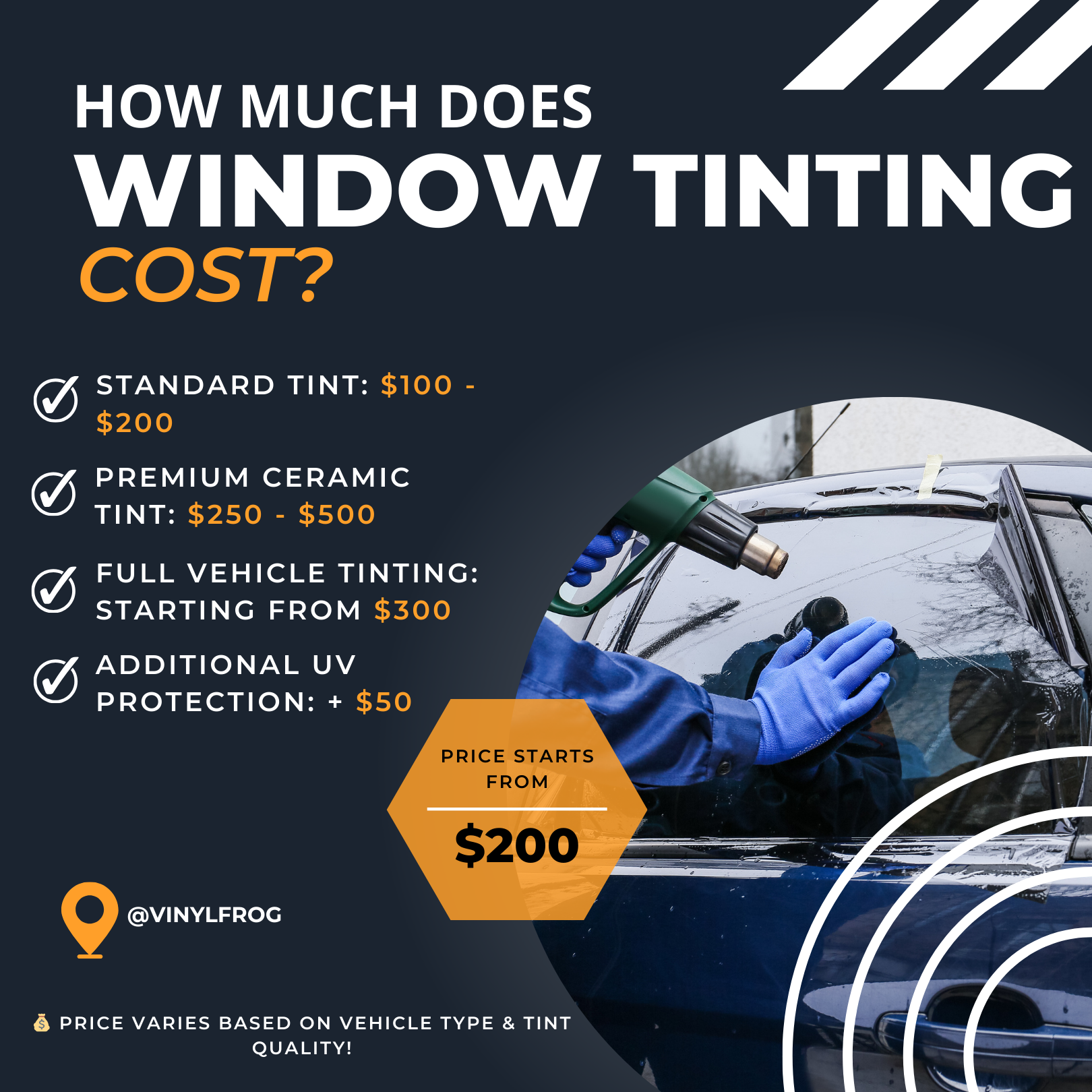Updated By Vinyl Frog On March 08, 2025
15 Percent Window Tint

Introduced in the mid 90s, window tinting on a car has taken the automotive industry by storm. The first generation of tints was factory installed and was the only option back in the day. The second generation of tints showed more success as the materials used were reflective and absorbent of heat. Since then, window tints have become popular in the industry not only for their aesthetic appeal but for their protective benefits as well.
The window tints percentage are available in different levels of shades and darkness. Read on to find out all you need to know about 15% window tint film.
What Is A Window Tint?
Window tint refers to a thin laminate film applied to a car's windows to give them a darker shade. The purpose of car tinting is to reduce the amount of sunlight and heat that enters the car, as well as to provide privacy and security for the occupants of the vehicle.

The level of tint can vary depending on the legal regulations in your state, and can be measured in terms of Visible Light Transmission (VLT) percentage. Generally, the higher the VLT percentage, the lighter the tint, and vice versa. Car tint can also provide some protection against UV radiation, which can cause damage to the interior of the car and can also be harmful to human skin.
Following are some common VLT percentages and their corresponding levels of tint darkness:
- 70% VLT: This is the lightest tint. It is like having no tint at all. It provides minimal protection against heat, glare and sunlight. You can have a clear view of the world outside.
- 50% VLT: This is a light tint that allows a lot of visible light to enter the car. It can provide some protection from the sun's heat and glare, while still allowing for good visibility both inside and outside the car.
- 35% VLT: This is a medium tint that allows some light to enter the car. It provides a good balance between heat and glare reduction and visibility.
- 5% VLT: This is an extremely dark tint that allows very little light to enter the car. It provides maximum heat and glare reduction, but it can also make it difficult to see inside and outside the car, especially at night.
How Dark Is 15% VLT?
15% VLT is a relatively dark tint that provides significant heat and glare reduction. It blocks 85% of the light from passing through making it quite difficult to see inside the car, especially in low light conditions. Hence it caters to privacy more than functionality.
Though it gives your vehicle a sleek and glamorous look, it is imperative to check the window tinting laws before installing this film as 15% window tint is illegal in most states. Applying it on the driver’s side and front passenger windows is prohibited by law in all states.
What Is the Cost Of 15% Window Tint?
The cost of applying 15% window tint can vary depending on several factors including the type of tint, the size and shape of the windows, the location of the installer, and the make and model of the car. On average, the cost of professional window tinting for a car can range from $100 to $500, but it can be more expensive for larger or more complex vehicles. More specialized 15% window tint films such as ceramic and carbon can cost from $250 to $800.

It's important to choose a reputable installer who uses high quality tint material to ensure a good job that will last. Keep in mind that the cheapest option may not always be the best option, and it's worth investing in quality installation to avoid problems like bubbling or peeling in the long run.
Common Options Available In 15% Window Tinting
There are different kinds of tint films available in the market in which you can easily get 15% VLT. They differ in quality and so also in durability and lifespan. These are:

- Dyed Window Tint: It is made by adding a layer of dye to a layer of adhesive film. It provides good heat reduction and privacy, but may not be as effective at blocking UV rays.
- Metalized Window Tint: It is made by adding a layer of metal to an adhesive film. It provides good heat and glare reduction, as well as good UV protection. However, it may interfere with cell phone or GPS signals and can have a shiny or reflective appearance.
- Ceramic Window Tint: It has a layer of ceramic added to an adhesive film. It is both non-conductive and non-metallic. It provides excellent heat and glare reduction, as well as good UV protection. It is also less reflective than metalized tint and does not interfere with cell phone or GPS signals.
- Carbon Window Tint: It is made by adding carbon particles to an adhesive film. It provides good heat reduction and UV protection, and has a matte, non-reflective appearance.
Frequently Asked Questions
Final Words
Window tinting your vehicle will bring another edge to your car. 15% window tint is a very dark shade. It doesn't allow excessive sunlight to enter the vehicle, consequently protecting the leather from deteriorating. It maintains the privacy of the passengers and protects against potential thieves however it is important to check with the authorities before installing it as it is not considered legal in most of the states.








